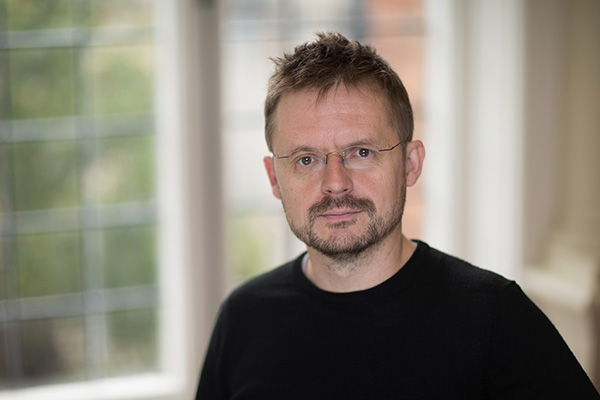Professor Oliver Pybus elected as Fellow of The Royal Society
Professor Oliver Pybus, Vice Principal for Research and Innovation at the Royal Veterinary College (RVC) has been elected as a Fellow of the Royal Society (FRS), for his outstanding contribution to excellence in science. Through his election, Professor Pybus joins an esteemed community of scientists awarded the FRS and is one of just a few RVC staff who have been awarded this honour.

The Royal Society is a self-governing fellowship comprised of eminent scientists, engineers and technologists who are elected for life through a peer review process based on their substantial contribution to science and the improvement of natural knowledge.
As an interdisciplinary biologist, Professor Pybus’ body of work has been recognised for its development of and contributions to the field of phlyodynamics, which aims to understand how evolutionary and ecological processes interact in natural populations. Throughout his career, he has developed tools for inferring population dynamics from gene sequences and showed how analysis of pathogen genomes can provide new empirical insights into virus epidemic history, transmission dynamics and molecular adaptation.
Today, Professor Pybus continues to further develop phylodynamic approaches and extend their applications to new fields. His work also provided an important contribution to the Covid-19 response, with the role of virus genomics being, in part, possible thanks to the ideas he and others developed and applied to other viruses over the preceding 20 years. His published work on Covid-19 includes a high-profile analysis of the mass introduction of the virus into the UK via international travel and development of the Covid-19 lineage naming scheme (B.1.1.7, BA.1 etc), helping inform public health and public discourse throughout the pandemic.
In addition to his role at the RVC, Professor Pybus holds a Professorship in Evolution and Infectious Disease at the University of Oxford. He is also a Professorial Fellow of New College, Oxford and was awarded the Scientific Medal of the Zoological Society of London in 2009 and the Mary Lyon Medal of the Genetics Society in 2019.
Professor Oliver Pybus, Vice Principal for Research and Innovation at the RVC and Fellow of the Royal Society, said:
“It is a great honour to be elected a Royal Society Fellow, and humbling to join scientists past and present who inspired and influenced me as a student. I hope to use my position to better support and mentor the researchers of the future. Modern science is a team effort and I am deeply grateful to my collaborators and colleagues, without whom my work would not have been possible.”
Professor Stuart Reid CBE, President and Principal of the RVC, said:
“Recognition by the Royal Society is amongst the very highest scientific accolades internationally and I am delighted for Oliver. He brings distinction to himself, his collaborators and his discipline and I am grateful to count him a senior colleague in the leadership team here at the Royal Veterinary College.”
Notes to Editors
For media enquiries, please contact:
- jasmin.devivo@plmr.co.uk or rvc@plmr.co.uk
- Press Line: 0800 368 9520
About the RVC
- The Royal Veterinary College (RVC) is the UK's largest and longest established independent veterinary school and is a Member Institution of the University of London.
- It is one of the few veterinary schools in the world that holds accreditations from the RCVS in the UK (with reciprocal recognition from the AVBC for Australasia, the VCI for Ireland and the SAVC for South Africa), the EAEVE in the EU, and the AVMA in the USA and Canada.
- The RVC is ranked as the top veterinary school in the world in the QS World University Rankings by subject, 2022.
- The RVC offers undergraduate and postgraduate programmes in veterinary medicine, veterinary nursing and biological sciences.
- A research led institution with 79% of its research rated as internationally excellent or world class in the Research Excellence Framework 2014.
- The RVC provides animal owners and the veterinary profession with access to expert veterinary care and advice through its teaching hospitals and first opinion practices in London and Hertfordshire.
You may also be interested in:
-
The RVC maintains top performance in Knowledge Exchange Framework for fifth year
The Royal Veterinary College (RVC) has once again secured strong results in the fifth Knowledge …

